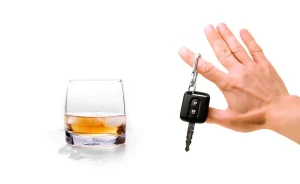
There has been an evolving understanding that substance misuse relates to a complex set of variables that includes a person’s genetics as well as physical, mental, emotional and social factors. At the same time, the distinction between addiction and dependence is not trivial. Medical professionals are ethically required to get the diagnosis right so that they can get the treatment right. These are less involved than partial hospitalization programs and typically take place at a treatment center or outpatient clinic. Clients receiving intensive outpatient treatment will usually visit the center 2 to 5 days per week for 2 to 4 hours per day.
- One study showed that a child of a parent with a drug or alcohol addiction is eight times more likely to develop an addiction as well.
- Dependence is a physiological state that develops when the body becomes used to the presence of a substance, leading to withdrawal symptoms if the drug is reduced or discontinued.
- Recognizing the differences between dependence and addiction is crucial for tailoring effective treatment and recovery strategies.
- Withdrawal symptoms can also trigger intense cravings for the substance, which may lead individuals to resume use to alleviate the symptoms and delay the withdrawal process.
- Substance use is a broad term that encompasses every instance of using harmful substances such as alcohol, drugs, nicotine, cannabis, or prescription medications.
Preventing Substance Use
Below, O’Neill outlines some steps that can help prevent substance use and substance use disorder. John C. Umhau, MD, MPH, CPE is board-certified in addiction medicine and preventative medicine. For over 20 years Dr. Umhau was a senior clinical investigator at the National Institute on Alcohol Abuse and Alcoholism of the National Institutes of Health (NIH).
Use, Abuse, and Dependency: Understanding the Addiction Process
Most people today seem to use the terms “addiction” and “dependency” interchangeably. The scientific construct of addiction has a rich and evolving history. Even the people who dedicate their lives to researching addiction, and who are responsible for the very medical texts that we use to diagnose addiction, haven’t been able to arrive at a clear consensus about which terms should be used. You can also find a list of treatment centers near you on our website to help get you on the path to recovery. Currently, the only behavioral addiction included in the Diagnostic and Statistical Manual of Mental Disorders, 5th edition, text revision (DSM-5-TR) main list is gambling disorder. Dependence can happen with many drugs, even when a person takes them as per their doctor’s instructions.
Top doctors in ,
- That said, for many, but not all, substances, tolerance and withdrawal are often part of the package of symptoms of a substance use disorder.
- Understanding the distinctions between addiction, tolerance, and dependence is crucial for accurate diagnosis and effective treatment.
- As a result, many physicians are ill-equipped to differentiate addiction from dependence due to a lack of expertise.
- Speak with your doctor if you develop a tolerance to your medication or any other substance.
- Sometimes, severe withdrawal symptoms require monitoring from doctors in a hospital setting.
- David Hawkins, Ph.D., director of the Social Development Research Group at the University of Washington.
This does not mean that the individual is addicted or dependent on the substance. Substance dependence is characterized by tolerance or withdrawal symptoms. Addiction, the “worst” of the three if you will, is a mental disease where the user is dependent on the substance and continues to use it despite its harmful effects on the individual or their family.

- Distinguishing between these concepts is essential in recommending the right treatments.
- If you think your substance use is causing problems in your life, help is available.
- No one starts with the intention of becoming addicted, but repeated use over time can drastically diminish control, leading to compulsive use.
- Mental dependence is when use of a substance is a conditioned response to an event or feeling.
- Addiction is primarily a behavioral and psychological issue, often linked to changes in the brain’s reward system.
- Because of the direct effects on the brain, an addicted patient will often act out of character and develop an inability to determine whether and when their use has become problematic and uncontrollable.
If you think your substance use is causing problems in your life, help is available. Alcohol and drug treatment centers are well-equipped to assess your substance use and provide tailored, individualized recovery plans. Below is a list of the most common forms of substance abuse treatment programs and what they entail. Drug abuse and addiction (now more commonly known as “substance use disorder” or “problematic substance use”) have led to a major health crisis in the U.S. Not only are millions of Americans struggling with substance use disorder, but in 2014 alone, there were more than 45,000 overdose deaths, over half of which involved prescription opioids and heroin. Alcohol abuse is also a continuing problem in the country, with over 65 million people binge drinking in the past month.
Substance Abuse vs. Dependence: What’s the Difference?

Similarly, a person who previously got high from any strain of marijuana might now need a more potent variety. This reflects the body’s adaptation to the substance, which requires higher doses to produce the desired outcome. The best approach to prevent substance use is to provide comprehensive education and support at all opportunities. Tolerance – The patient has developed either a need for greater amounts of alcohol to reach his or her desired level of addiction vs dependence intoxication, or has observed a reduced effect when using the usual amount of alcohol.

It is no secret that misinformation about addiction is rampant in popular media. One particular area of misinformation concerns how the use of language is employed when describing topics related to addiction. Additional training in assessment and diagnosis for physician trainees at the medical school level is also needed. Most medical schools only devote a few hours over four years to teaching addiction medicine, a mere fraction of the time devoted to other chronic diseases encountered in general practice 8. As a result, many physicians are ill-equipped to differentiate addiction from dependence due to a lack of expertise. Other professionals who diagnose addiction (e.g. social workers, physician assistants, nurse-practitioners, addiction counselors) also need better education about these distinctions.
No comment